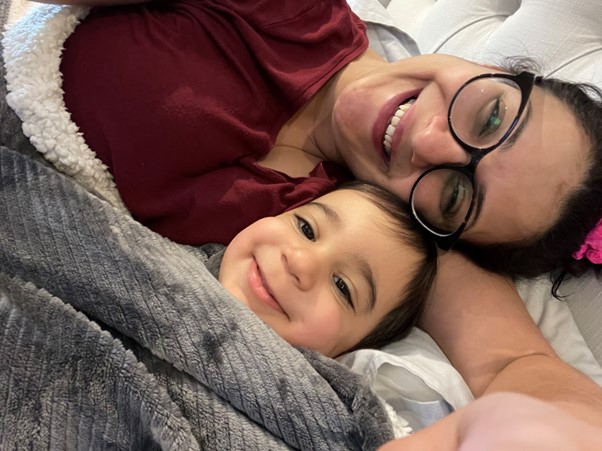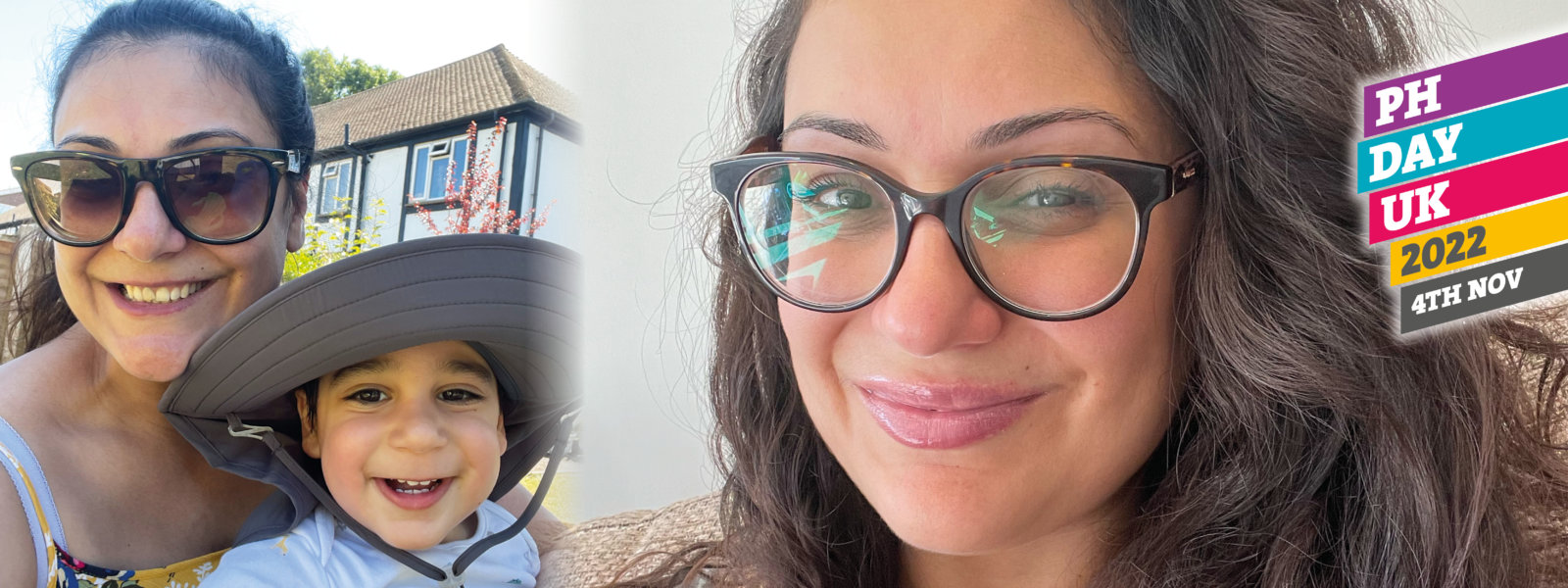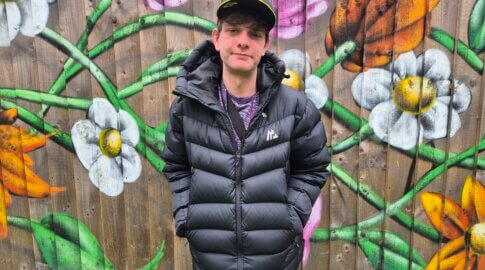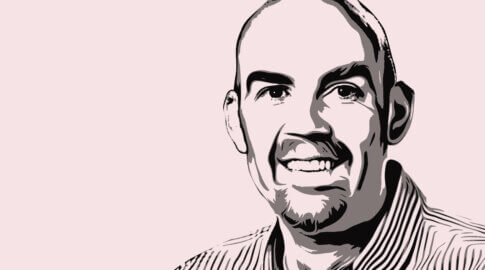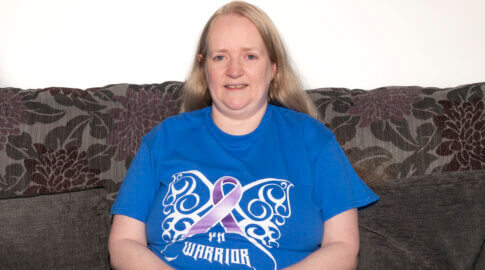“I am a person, not a statistic”
Charoula Michael was diagnosed with PH whilst pregnant during the pandemic and defied the odds to be able to share her story for PH Day UK. Here, the 39-year-old from Surrey explains what she went through and why more people to need to understand this complex disease.
“I felt very breathless and had extreme fatigue throughout my pregnancy with Andreas, who is now two. I just knew there was something wrong, and at around seven months pregnant I was being asked to go into hospital for daily checks on the baby because of the position of my placenta.
During one of these visits, I asked the midwives to check my oxygen levels, as the previous night I had been gasping for air. The levels were so low that I was admitted immediately, because they thought I had covid.
This was during the fist lockdown in April 2020, and I was taken to an isolation room. My husband couldn’t be with me, and all the staff were in full PPE. It was terrifying.
I had numerous tests, and a consultant came to see me. I will never forget the look on his face; he looked like he had seen a ghost and he was stumbling over his words. He told me my heart was double the size it should be, and I was being transferred to a high dependency pregnancy unit at another hospital. I can’t explain how petrified I was.
Getting the right support
I was met at the unit by seven consultants, all pacing up and down. They said I had a serious condition called pulmonary arterial hypertension and there was a 50% chance of survival for both me and my baby.
I was transferred to a room in intensive care and started on some PH treatment that would give me a better chance of living when the baby was delivered.
I had nurses with me 24 hours a day. One stayed next to me and one stood guard at the door, because I was at such high risk of covid.
I still couldn’t see my husband, and none of my family live in the UK, so I felt completely isolated. But I was determined to live, for my baby.
After a week, he was delivered by cesarean section. There were about 20 people involved in the surgery and I had to have life support lines inserted, in case I crashed.
Andreas was tiny, and struggling to breathe, so I could only hold him for four minutes before he was taken to intensive care.
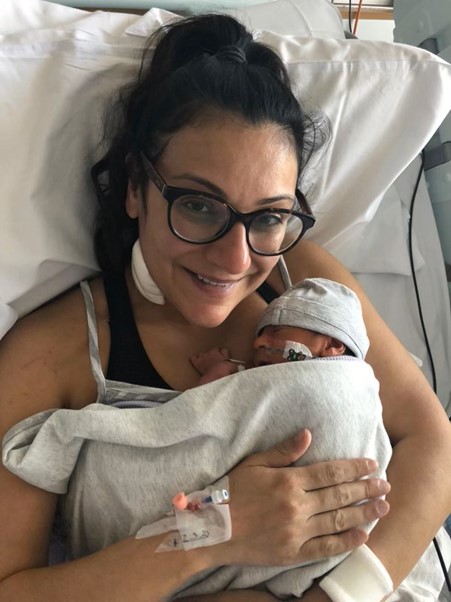
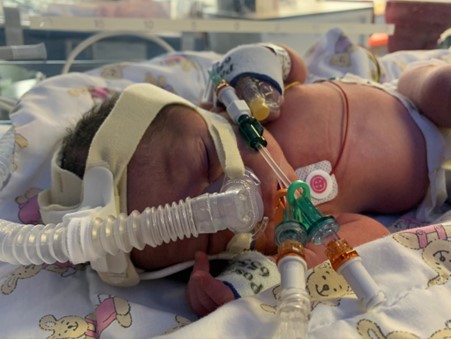
Because of covid risks, I was only able to see him twice in two weeks. I was fighting for my life, and the only thought I had was that my son was doing the same and I couldn’t be with him.
After three weeks doctors decided that because I was now responding to PH medication, I’d be safer at my house, away from covid risks in hospital. Andreas was moved to a nearer hospital, and eventually he came home.
Doctors think I had PH for a long time, and it was the pregnancy that exacerbated it. I was told that if I hadn’t got pregnant, I would never have started on treatment, and one day my heart would have just stopped. I do believe that getting pregnant essentially saved my life.
Two and a half years after all of this, I am stable on my medication and the size of my heart is reducing. I’m able to live a fairly normal life, and for that I feel lucky.
I want other people with PH, especially mums diagnosed during pregnancy, to know that it doesn’t have to be a life sentence. My story shows that a happy ever after is possible.
Andreas has been the main motivation to keep me going through all of this, to wake up every day and fight. PH is not going to win.
Not all days are good ones. You carry your life expectancy on your shoulders, but there is no shame in not coping sometimes. I still have nightmares about everything that has happened, but I am getting help.
Fighting an invisible illness
A lot of people don’t understand what it means to have PH and how it can affect your life. To many, a sick person is someone who has cancer. I don’t look ill and I am a very determined person, so most people around me don’t understand just how unwell I am and how serious my condition is.
They don’t have any empathy or sympathy because they don’t understand it. I feel like the only people who do are the PH community.
I get judged by people that don’t know me too. I’ve been told by a stranger that I should be ashamed of myself for using a disabled parking space when I don’t need one.
There have been times when I’ve refused to use my blue badge even though I desperately needed it, because I just couldn’t cope with the looks and what people would say.
I wanted to share my story so the wider public can learn more about invisible illnesses and understand that those living with them need support rather than judgement. I am a person, not a statistic, and not everything is black or white.”
